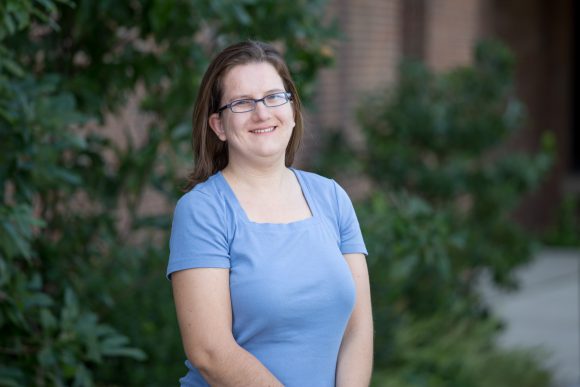
Megan Muehlbauer
Megan Muehlbauer joined the Department of Agriculture and Natural Resources of the Rutgers New Jersey Agricultural Experiment Station as county agent III/assistant professor in Hunterdon County in August of 2017. Muehlbauer earned her B.S. in agricultural science and Ph.D. in plant biology from Rutgers. As a county agent, she provides leadership to develop, implement, and evaluate educational programming and research for the needs of growers in commercial tree fruit production, management and marketing. She also provides assistance in commercial small fruit, wine grape and related commodities throughout the county and region, while studying the potential for the production of high quality hops and hazelnuts in New Jersey and pursuing other novel high value crops such as hard cider apples.
While working toward her undergraduate degree in biotechnology, Muehlbauer spent her summers learning how to set up, take data from and analyze field-based research in tree fruit production. These two seemingly divergent research paths coalesced and laid the groundwork for a very ‘applied’ molecular doctoral project. Under the advisement of professor Thomas Molnar, associate professor in the Department of Plant Biology, she completed her dissertation thesis titled ‘The utilization of molecular and biochemical tools to assist in the breeding of hazelnuts (Corylus Spp.)’. As a graduate student she also became interested in the craft beer movement and the potential to source locally grown ingredients. With the assistance of professor Jim Simon, she obtained a collaborative SARE grant to establish a chemical quality analysis service at Rutgers for hop growers.
Her graduate research projects took her not far from home–she was raised on a grain farm in Pittstown, NJ, just a stone’s throw from the Rutgers Snyder Research and Extension Farm. In her role as agricultural agent, she continues to conduct research and extension outreach at Snyder Farm.
As part of a sprawling research institution, Muehlbauer hopes to leverage the extensive laboratory-based resources to assist growers in finding solutions to their field based questions. She cites as examples–molecular tools can be utilized to quickly and accurately identify a tree whose label has been lost; and diseases found in the field can be rapidly diagnosed using technologies such as Real Time PCR. “Ultimately, I am looking forward to developing a research program that will have a significant impact on fruit growers, not only in Hunterdon County, but throughout New Jersey,” stated Muehlbauer.
When not at work, Muehlbauer enjoys cooking and travelling. “I can often be found scoping out elaborate recipes and spending a day in the kitchen mastering classic cooking techniques. Throughout graduate school I developed a bit of a travel bug and when the opportunity arises I take to the road, exploring new places. I continue to travel all over the country, enjoying hiking, scenery and stopping in any and all foodie-centric cities I come across.”

